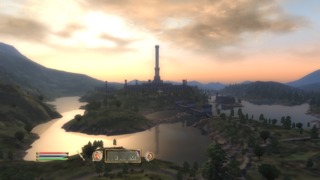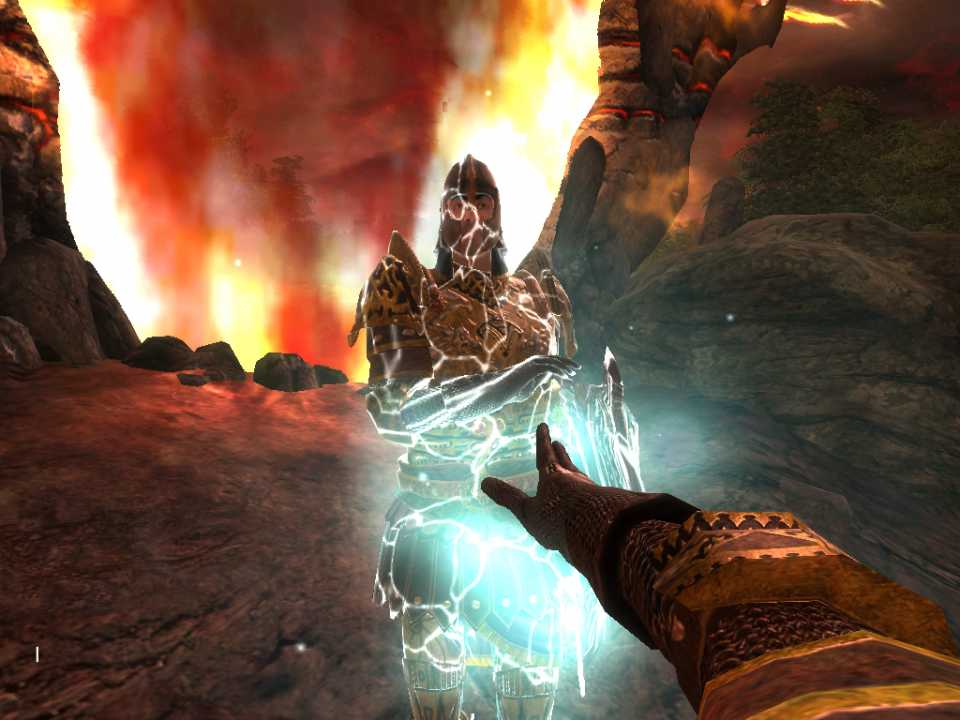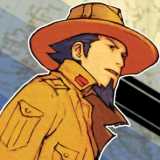Gaming Memories: Oblivion
By majormitch 13 Comments
Welcome to “Gaming Memories,” a blog series where I reminisce about my favorite video games. I will slowly but surely get to every game on the list, and speak to why each holds a special place in my heart. That not only means I’ll talk about why I think each is a great game that speaks to my tastes, but also where and how it affected me in a larger context. I hope you enjoy, and thanks for reading.
In the spring semester of 2006, I was studying abroad, far from home. For five months my gaming time was limited to handhelds, and while I used that time to play many wonderful handheld games, I couldn’t help but see footage of then “next gen” games for the newly released Xbox 360, and get excited about the chance to experience them. My interest in the new console slowly but surely turned from indifference to awe, and when I returned home for the summer, I made the plunge. And there was one game that drove the purchase drastically more than any other: The Elder Scrolls IV: Oblivion.

Oblivion started with the standard Bethesda opening: you went through a brief tutorial in a closed, linear environment -- in this case a jailbreak through the sewers -- to emerge out into its vast, beautiful, and open world. From there, you could go wherever your curiosity took you. It’s a powerful and effective moment in a lot of their games, but experiencing that moment on a console in HD for the first time remains one of the most visually resonant gaming moments I’ve had. Cyrodiil was a bright and diverse land that was immediately appealing, and its visual splendor enticed me to explore right away. I especially appreciated said diversity, which was one of Oblivion’s biggest strengths. While you first emerged into rolling green hills, your adventures could take you to all sorts of varied locals: dense forests, pristine lakes, radiant coastlines, frigid mountains, murky swamps, and so on. Situated in the center of Tamriel, Cyrodiil inherited the geography of its surrounding provinces around its own periphery, which proved to be a welcome boon. It made my exploration consistently enjoyable and often surprising, and combined with how gorgeous the game was, I didn’t stop exploring until I had seen everything I could. All of Bethesda’s open worlds are a treat to explore, and Cyrodiil is one I remember more fondly than most.
Oblivion was also a more polished game than its predecessors, which made the process of exploring and engaging with the world much smoother. While plenty have argued that Oblivion “dumbed down” the franchise to some extent, I personally appreciated its more streamlined approach. Combat in particular received a welcome boost with Oblivion: it was much more responsive and visceral, and thus more engaging and less tedious for me. The menus and UI were also cleaner, which made keeping track of quests and my character’s stats and gear much simpler. As such, Oblivion made it easier than ever to remain focused on The Elder Scrolls’ core strengths of freeform exploration and intricate character-building, strengths which were still very much intact here. Exploration, in addition to the natural beauty of Cyrodiil I described above, could also reveal countless likable characters and fun quests. The core questlines were worthwhile in their own right (shout-out to The Dark Brotherhood), but you could also stumble into surprisingly interesting one-off quests in all corners of the world. Character-building leveraged The Elder Scrolls’ iconic open-ended system once again, which allowed players a lot of control in crafting highly unique and personal characters. Oblivion carried on these traditions splendidly.

Yet for all its polish, one aspect of Oblivion remained rough: its skill and leveling systems were convoluted and easily breakable, which had results both good and bad. On the one hand, levelling up could potentially be a negative, which is counterintuitive and nonsensical. Since enemies in the world gained levels when you did, depending on exactly how you leveled, it was possible to fall behind the curve. On the other hand, if you understood how it all worked, you could easily manipulate Oblivion’s systems to become an unstoppable god. It was totally wild, and once I wrapped my head around it, I went on to have one of my most memorable experiences building a video game character. I planned, I busted out the spreadsheets, and I carefully abused the system to create a character with the maximum possible stats and skills at the lowest possible character level, thus keeping enemies at their lowest possible level as well. In addition to being incredibly overpowered, it was also a blast to have a character who was good at everything: sword and shield, giant hammer, bow and arrow, stealth, charisma, any flavor of magic you could want. The joy of character-building in The Elder Scrolls is in how malleable it is, how you are never constrained to character archetypes and can dabble in everything all at once. In Oblivion, this was true to the point of being completely busted. Yet I loved every minute of it; nothing was off-limits for my super character. It was the ultimate power fantasy, and the personal effort I put into the process made the payoff that much more satisfying.
The Elder Scrolls IV: Oblivion took the freeform exploration and intricate character-building the series was known for, streamlined it without losing much depth, and took advantage of more powerful console hardware to make a stunning leap in audiovisual presentation. It felt like the perfect storm for the series at large, and while there was certainly a “right time, right place” effect for me personally, it was undoubtedly the perfect storm for my enjoyment of it. After getting a Xbox 360 and The Elder Scrolls IV: Oblivion, I spent most of the summer of 2006 exploring Cyrodiil and all it had to offer. It was a magical time I’ll never forget.
